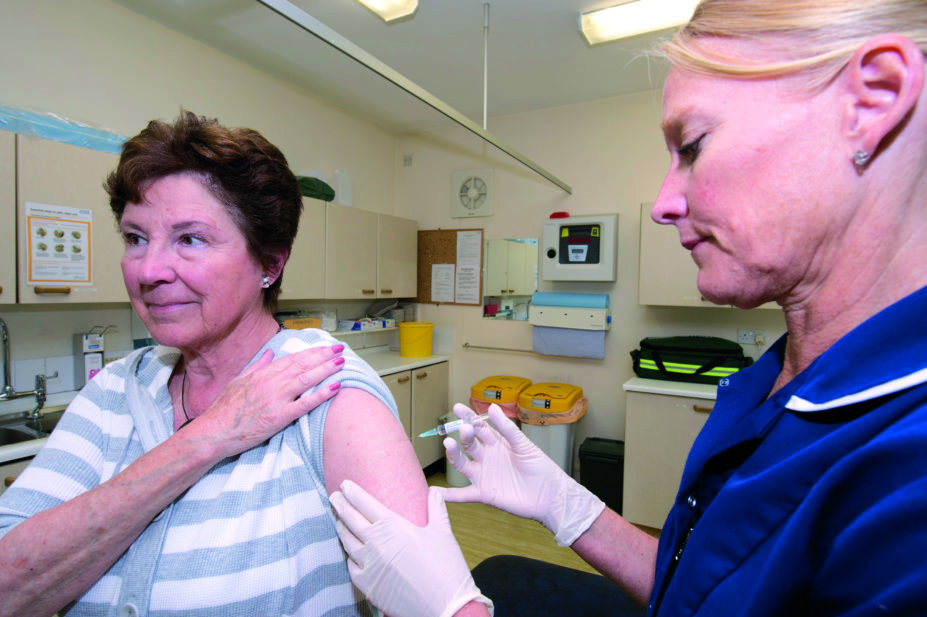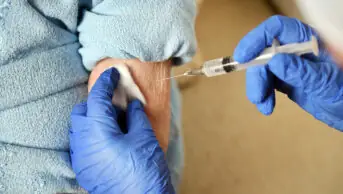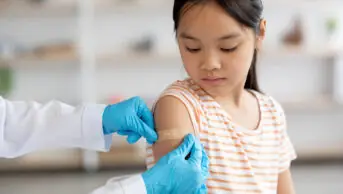
Dr P Marazzi / Science Photo Library
London pharmacies are taking part in a month-long campaign to boost uptake of shingles vaccine in older patients.
It is hoped the initiative, which is running throughout July, will reduce some of the variation in uptake seen in the capital.
Shingles, also known as herpes zoster, is a viral infection of a nerve and the surrounding skin caused by the varicella zoster virus, which also causes chickenpox. It occurs most commonly in people aged over 70.
In some London boroughs, only 36% of eligible individuals are vaccinated against shingles compared with an average of 48% across London as a whole and 58% in the rest of England.
According to NHS Choices, complications from shingles are rare but are more likely if a patient has a weakened immune system or is old.
The most common complication is postherpetic neuralgia, which can cause severe nerve pain and intense itching that persist after the rash and any other symptoms of shingles have gone. Some estimates suggest that as many as one in five people over 50 years could develop postherpetic neuralgia as a result of shingles.
As part of the campaign, more than 1,800 pharmacies are being asked to promote the availability of the vaccine on the NHS to eligible patients and to question those they think may benefit before signposting them to their GP for the immunisation.
Patients are eligible to have the shingles vaccination between the ages of 70 and 73 years.
There is also a catch-up programme for those aged between 78 and 80.
Pharmacy London chief executive Rekha Shah said she hoped a high proportion of London pharmacies would get behind the initiative.
“The importance of people getting this vaccination will be highlighted to those who are, or look as if they might be, eligible for the vaccination when they go into any London pharmacy during July.
“They will also be asked a few easy questions to raise awareness of the NHS shingles vaccination programme.”
Dr Tom Coffey, the Mayor of London’s health advisor and a practising GP, said: “This safe, free one-time vaccination is very important to older patients in order to prevent the potentially nasty effects of the shingles virus, which can be life-changing for vulnerable older people.
“The chance of getting the rash will be decreased by up to 50%.”
He added that for those who get shingles despite having the vaccination, the illness is likely to be much milder.
“It’s good to see GP practices and community pharmacies collaborating to take this message forward to protect our patients.”


